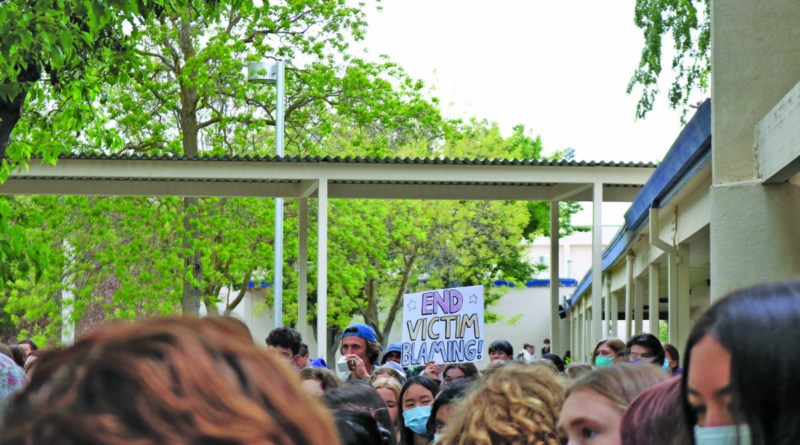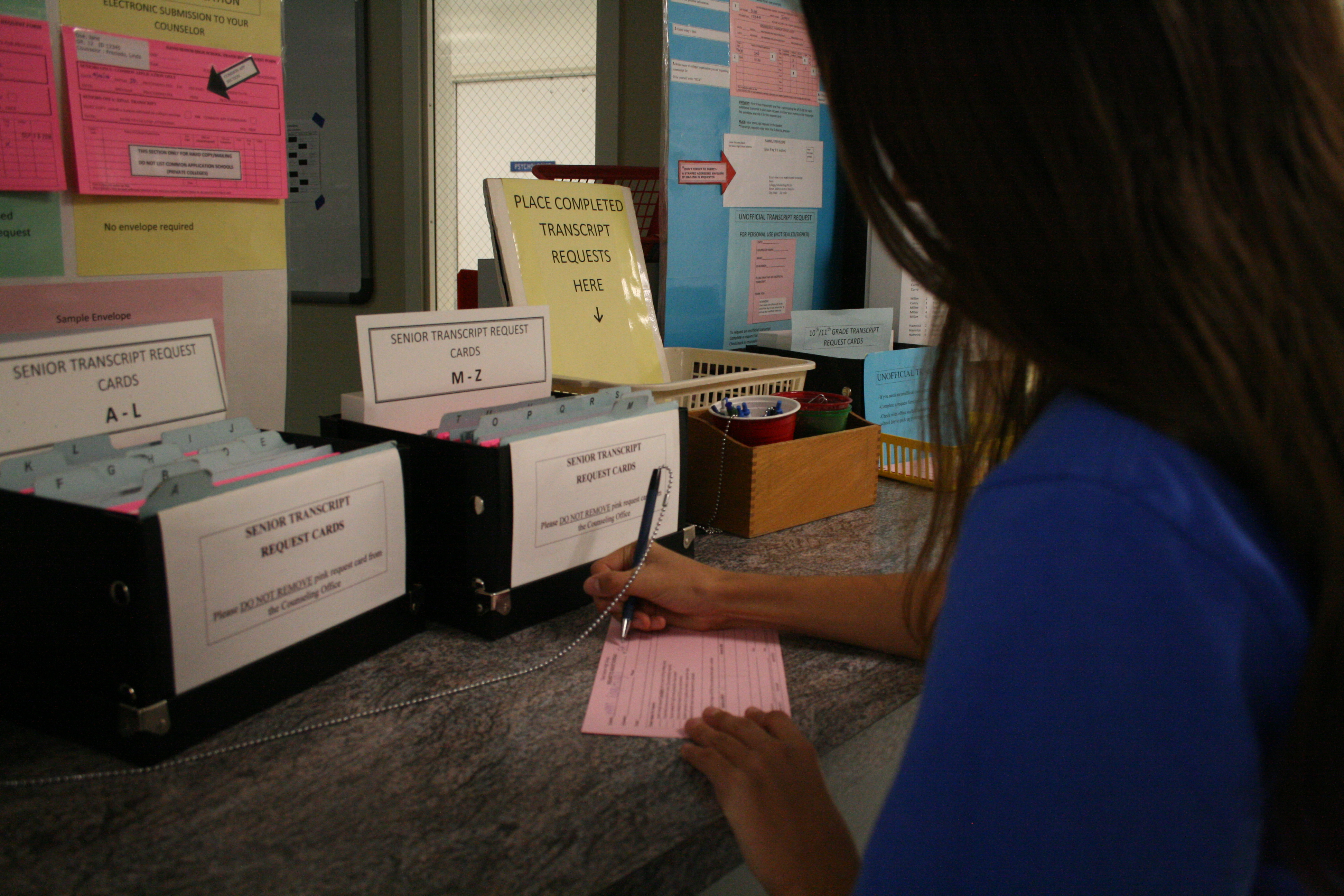Senior assembly on sexual assault sparks controversy
PHOTO: Signs made in response to the assembly urged DJUSD to “End Victim Blaming” and “Fix Your Broken System.”
By Genna Olavarri & Shira Kalish
BlueDevilHUB.com Staff–
The senior class floods into the theater, chattering and laughing. As a woman takes the stage, students continue talking, phones illuminating rows of faces.
As the assembly topic becomes evident, the volume in the theater quiets down. The phones
disappear.
Davis High presented a sexual assault awareness assembly to seniors on April 11. The assembly featured the hour-long version of the 2015 documentary “The Hunting Ground”—a startling exposé on the prevalence of sexual assault on college campuses.
The assembly prompted a firestorm of reactions from students online, and in response the school administration issued an apology to seniors the following day.
Students organized a demonstration on April 14 calling for the school to more aptly address sexual assault awareness and allegations in the future.
Most students were unaware of the assembly topic going into it, and there was no trigger warning, or notice that there would be topics discussed that may remind students of traumatic events, prior to the presentation.
One senior, who has requested to remain anonymous because of her own experience with sexual assault, had heard that they were watching a movie. “I walked in and they were like, ‘Oh, by the way, this is a sexual assault film,’” the senior said.
The documentary graphically describes several instances of sexual assault.
“The documentary was interesting to watch, if we were trying to uncover the problems within educational systems,” the senior said.
“In terms of sexual assault awareness, I do not think it was that helpful because the whole documentary was just primarily of people retelling their stories of them being assaulted and then proceeding to talk about how they received no help from the institutions that they went to.”
Some students felt that the film did not offer resources or solutions for sexual assault survivors.
“I think that the documentary just really reinforced the idea to me that no one’s there, no one’s going to help you,” the senior said.
While this senior was able to seek out mental health support after she was sexually assaulted, she felt that, “if someone who had just gotten assaulted and was planning to do something about it watched that documentary, I don’t think they would have gone out and decided to do it.”
However, for some other students, the presentation achieved its goal: awareness.
“The assembly and the student response to it has really forced boys to think more about the trauma of sexual assault, something that many boys, including me, don’t think about a lot,” senior Luca Maes said.
After the film, a sexual assault survivor and UC Davis alumni, Yee Xiong, shared her story. She was assaulted in 2012, but her case was not brought to court until 2014 and she was dealing with the legal fallout through 2018.
Some students felt that this also reinforced the idea that there are few opportunities for survivors to seek justice.
The senior was concerned that the “presentation might encourage people to commit acts of assault” since the assembly discussed how rarely sexual assault perpetrators are held responsible for their actions.
After Xiong concluded her story, she opened the floor for a questions and answer session. One of the seniors who spoke up addressed her question not to the speaker, but to the school. She called out DHS for holding the presentation while the school had not supported a student who recently reported an instance of sexual assault on campus.
The student she was referring to, a sophomore at DHS, did not give the senior explicit permission for her name to be used. She was planning on addressing a letter to the school, but found out that her name was used during the senior assembly from her brother.
“She didn’t really ask (to use my name), but, I mean, it’s okay. I was going to come out and speak against the school either way,” the sophomore said.
After the assembly, students began speaking up on social media, speaking out against the presentation and sharing their own stories about sexual assault.
According to DHS Principal Tom McHale, the school began presenting “The Hunting Ground” every year at senior assemblies in 2016 because it had “favorable reviews.”
Due to COVID-19, this was the first time it was presented since 2019. McHale said that this was the first time the film received this sort of reaction from the student body.
The DHS administration sent out a statement to seniors on April 12, the day after the assembly. The email said “the film was not received by some students as we intended, and we have spent time reflecting on what unfolded during and after the film.”
“No one ever intended to harm anyone,” said Director of Student Support Services Cara Messmore.
The following Thursday, seniors gathered in the Brunelle Theater to collect their caps and gowns. Before the event began, McHale spoke to the crowd briefly about the response to Monday’s assembly.
“We are truly sorry for any harm or hurt that was caused,” McHale told the audience.
“Cap,” a student in the back retorted, using a slang word that means “liar.”
The administration has decided that they will no longer host large assemblies on such sensitive issues.
The administration is making plans for school nurse Abby Serin to give a presentation to classes this year about sexual assault awareness, which will include additional resources for students who need support.
McHale has met with every student who has contacted him regarding the assembly. “I really encourage students to reach out to me,” McHale told the HUB.
“Our administration and DHS staff are here to listen and work closely with (students) to make our school a better place.”



